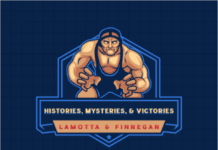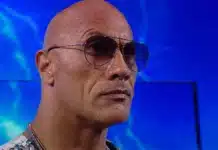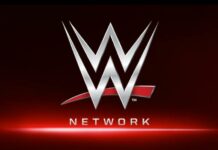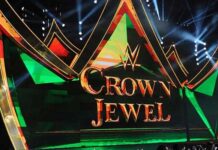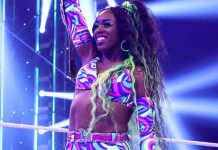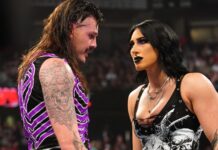
Former WCW World Heavyweight Champion Vader recently took some time to participate in an exclusive in-depth interview with PWMania.com. Vader is best known for his time with New Japan Pro Wrestling, WCW, WWE and All Japan Pro Wrestling in the 1990s. A super-heavyweight wrestler capable of aerial maneuvers such as the moonsault and the dropkick. Vader spoke on his working relationship with Vince McMahon and Eric Bischoff, the incident with the interviewer in Kuwait, pulling off his moonsault, his son’s run in WWE developmental and more. Check out the complete interview below:
How did you decide to become a wrestler?
I had been playing football since I was 6 and I was a two-time All American at the University of Colorado in Boulder and got drafted to play professionally. I was working out and running the 40 yard dash and got injured. From there, my football career was done, because it was pretty hard to come back from that kind of a rupture. After that, I moved back to Boulder and I started doing real estate, which I enjoyed. You know, I often wonder sometimes if I stayed in real estate, whether it would have been better at this point. But I got bored with it after a while.
I grew up a big fan of wrestling and thought I’d give it a try, so I went to wrestling school and got trained.
During your career, you’ve wrestled in many countries. What are some of the unique aspects of wrestling in different countries?
Each country is different and they have their own style. There are some things that go over in some countries that may not do as well in others. You learn to adapt. If I was in Europe, my wrestling style would be different than it is in Japan. You just have to figure out which style works where.
Out of all the countries you’ve wrestled in, which one do you prefer to work?
My style is best suited in Japan. I’ve always been accused of being too stiff in other countries. In Europe and Mexico, my style’s fine. In WCW, it was borderline and in WWF, it was considered too stiff. It became apparent to me that I needed to work a certain way in one company and another way in another company. That all goes back to my point of having to adapt to your environment.
What was your working relationship like with Eric Bischoff and Vince McMahon?
Eric was a unique individual. He was an announcer and didn’t really know a lot about wrestling. When he first moved into the top spot, the top guys were me, Ron Simmons, Sting and Cactus Jack. The company drastically changed when guys like Hulk Hogan and Ric Flair came in. But the thing you have to admit about Eric is that he made history. What he did is on the record books. He took the nWo and created a monster company that was highly successful.
As far as Vince is concerned, I’ve worked for so many great promoters such as Misawa, Inoki, etc who were very good at what they did. But Vince is the best. Everything he wanted to do with the WWE, he has done it and has done so successfully. It’s the largest pro wrestling company in the world and has been for a long time.
At one time, Giant Baba sold out houses years upon years and Misawa did well when he started Pro Wrestling NOAH. But it’s tough to compare them to Vince. And another thing about Vince is that he didn’t start out with all this money. He created what you see on TV today and he’s done wonders for the company and himself.
How do you feel about your overall run in WWE? You won titles everywhere else except WWE. Do you wish you would have held a WWE title?
I wish I had won a title. I came close on several occasions, but it never happened. Everywhere I went, I was a dominant individual when it came to winning titles, but in WWE, it just didn’t seem to go my way. Things didn’t work out. But nonetheless, I enjoyed my time there.
You’re a big guy who could pull off a move such as a moonsault. For a guy that’s not a light-heavyweight, how do you execute that move?
I just have the athleticism to do it. I guess it gets harder if you’re heavier. But to me, it is just second nature and I am still able to do it to this day.
What are your thoughts on your son Jesse’s (Jake Carter) run in WWE developmental?
He lives in Dallas, Texas and works in a pharmacy, so he’s doing well for himself since he left WWE. I’m proud of his accomplishments. I thought he was a very good wrestler. He was basically a pretty boy who looked good in the ring and moved well. He played football in high school and got a scholarship to play at the University of Oklahoma. There are not too many people wrestling today that say they got a scholarship at that kind of school and then wrestled.
When he was wrestling, I stayed out of it, which is what WWE preferred. They didn’t want me down at the training center every week to teach my son how to wrestle.
One of your more notable moments in WWE was this incident with the interviewer in Kuwait where he asked you if wrestling was fake and then you reacted to what he said in a way that surprised him. Can you describe what exactly happened?
I was standing backstage watching a show on the air. The representative for the WWF was next to me. The producer of the show was a friend of the interviewer. He came over to me and said the interviewer was going to ask me if wrestling was fake. He told me to stand up, act insulted, kick over the coffee table and scare him, don’t hurt him. I said that we were told not to do anything of that nature in this country. And he said “No, this guy’s a good guy, he knows it’s gonna happen, he’s a good friend of mine and it’ll be funny.” The manager from the agent in charge from WWF said, “Leon, do what they want you to do.”
I was acting under orders from the producer, not the agent in charge. But when I did what I did, the interviewer was caught off guard and was frightened. The cops were called and I went to jail. I took the heat. But the point is that it was a skit. They wanted to use this thing to increase ratings, but it just wasn’t the case.
A few years ago, you had a close call with your health. You were able to come out of that and since then, you’ve done work with the Wounded Warriors Alliance as well as doing motivational speaking. How has your experience with that been thus far?
I was with the Wounded Warriors for two and a half years and it was a very rewarding time in my life. I was excited about going to work and helping out these young men and how they responded to me. It’s a great thing to be a part of and a great thing to support.
I’ve had one guy named Dave who’s had some of his body parts burned off and his story’s quite captivating. He was thrown in a bodybag and was declared dead initially until they figured out he was alive.
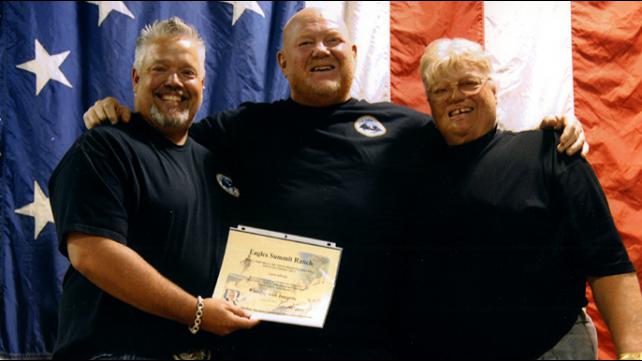
Has there been a time where you feel you’ve truly made a difference in someone’s life? In other words, has someone come up to you and said, “Vader, you’ve really changed my life with what you’ve said today.”
Yeah, I’ve had tons of those, actually. What I try to get across to these guys is that even though I may not have done what they have done, I can relate to them in the way that I’ve had injury after injury yet I’ve kept coming back. I was also a part of a recovery program where I helped these guys recover through mind, spirit and body and just doing that makes a significant impact on their lives.
What’s next for Vader?
There’s a company called PCW (Preston City Wrestling) in Preston and it is run by a young guy named Steve Fludder. He’s got a talent-laden roster that’s young and versatile and they put on good shows. Every show I’ve been to has been great. If you’re in the area, go see them.
There’s another company called Exposure Entertainment in Wales ran by a guy named Nigel Fluming. I’ve worked with him before and hopefully I’ll be going back to him. Their website is www.exposureentertainment.co.uk.
Thanks again for your time, Vader! PWMania appreciates your comments and wishes you the best!
Follow Vader on Twitter @ItsVaderTime.
Follow Brett on Twitter @TheDeutch.
Follow PWMania on Twitter @PWMania.

